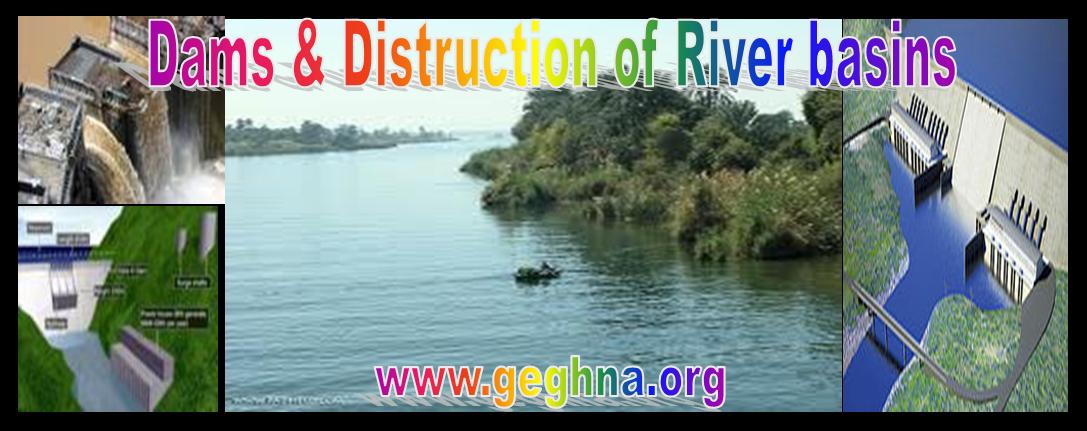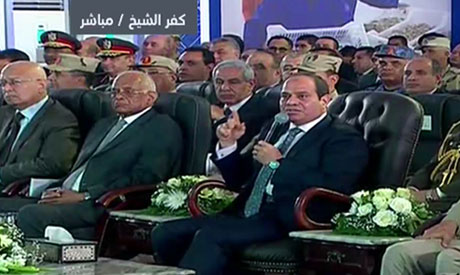Egypt ups political steps to counter Ethiopia over water crisis
CAIRO — Secretary-General of the Arab League Ahmed Aboul Gheit transmitted a warning from the league to Ethiopia during the opening session of the fourth Arab Water Forum Nov. 26, saying, “Water security for Egypt — the biggest Arab country in terms of population — is part and parcel of the Arab national security.”
After announcing, on Nov. 12, the failure of negotiations to resolve the Renaissance Dam crisis with Ethiopia and Sudan, Egypt is now taking several measures to internationalize the Nile River quota crisis. Egypt mainly wants to establish an international coalition for the downstream countries harmed by the dam projects conducted by upstream countries. The measure was proposed during the Arab Water Forum, which was organized by the Arab Water Council and held in Cairo on Nov. 26-28, under the umbrella of the Arab League and in coordination with the Egyptian Ministry of Water Resources and Irrigation.
Egyptian and Arab officials talked about the internationalization of the Renaissance Dam issue on the sidelines of the Arab Water Forum.
Saudi Prince Khalid bin Sultan, the honorary president of the Arab Water Council, called for holding a water summit to face water piracy and terrorism. He said in his speech, “Water terrorism is as dangerous as any other kind of terrorism. We have to be armed with all methods to fight it.” He added that a force is needed to prevent water extortion.
Aboul Gheit noted that the Arab League is following up on the talks between Egypt, Sudan and Ethiopia with concern. He said, “We do not feel Ethiopia is willing to coordinate and cooperate much. Ethiopian plans to operate the dam and use its water for irrigation are still vague and worrying.”
Meanwhile, a meeting is scheduled in Cairo between Egyptian President Abdel Fattah al-Sisi and Ethiopian Prime Minister Hailemariam Desalegn at a date to be decided on, some time in mid-December. Desalegn will address the Egyptian parliament and discuss the Renaissance Dam establishment on the Blue Nile and Egypt’s concerns of the negative repercussions on its water share.
On Dec. 4, 19 members of parliament submitted a memorandum to Egyptian parliamentary speaker Ali Abdel Aal refusing to welcome Desalegn in parliament, as the visit could give Ethiopia the upper hand in international forums over Egypt.
Mahmoud Abu Zeid, the head of the Arab Water Council and former minister of water resources and irrigation, told Al-Monitor, “The Arab Water Forum discussed — with government officials and water experts representing 22 Arab and African countries in different sessions — ways to deal with conflicts over water shares in the Middle East and North Africa region.” He indicated that the council is trying to develop a global coalition of downstream countries to face the dominance and control of upstream countries with transboundary rivers over water.
Hussein el-Atifi, the coordinator of the forum and former minister of water resources and irrigation, told Al-Monitor, “Upstream countries like Ethiopia believe the agreements regulating the management of shared rivers with their neighbors conflict with their desire for sovereignty and control of river resources.”
One of the forum's sessions — titled “Shared Water Resources” — discussed the actions of Ethiopia, a state from which 22 rivers flow, against seven of its neighbors that share rivers with it. Al-Monitor attended the session in which an official Somali convoy took part. Abdullah Elmi Mohammad, the head of the Somali Center for Water and Environment, explained the damages on Somalia due to Ethiopia’s construction of the Melka Wakena Dam on the Shebelle River.
During the session, Abu Zeid elaborated on Ethiopia’s construction of 15 dams, excluding the Renaissance Dam, on the shared rivers with seven neighboring countries without consulting anyone, which constitutes a threat for these countries’ water security. There are four dams on the Blue Nile shared with Sudan, South Sudan and Egypt; the Upper Atbara Dam that is shared with Eritrea and Sudan; four dams on Awash River shared with Djibouti; two dams on Shebelle River shared with Somalia; and three dams on Omo River shared with Kenya.
Abu Zeid noted, “The total annual hydropower capacity in Ethiopia is about 3,696 megawatts. Ethiopia's current export of electricity, its national hydropower annual potential of 45,000 MW generated from all its rivers and its plans to export electricity generated from the new 6,000 MW of the Renaissance Dam confirm that the country does not need the power it wants to generate from the Renaissance Dam for local demand.”
Ashraf Badr, the media adviser at the Arab Water Council, told Al-Monitor, “Ethiopia’s greed to produce hydroelectric power from dams aims at monopolizing the energy export markets rather than fulfilling local demand.”
Somalia's Minister of Irrigation Salim Aliyu told reporters on the sidelines of the forum, “Somalia is currently negotiating with Ethiopia through the East African Community to reach an agreement on the joint management of transboundary rivers.”
Egypt started mobilizing Arab support on the Renaissance Dam issue through various steps. Egyptian Foreign Minister Sameh Shoukry met with his Saudi counterpart, Adel al-Jubeir, on Nov. 14, and the Egyptian Foreign Ministry issued a statement saying that the kingdom understands the Egyptian concerns about its water security. The Egyptian government also issued a statement Nov. 15, in which it affirmed that it has taken the necessary measures at all levels because its water security is one of the pillars of its national security.
Egypt’s former Minister of Water Resources and Irrigation Hossam Maghazi told Al-Monitor, “Egypt’s political escalation in the Renaissance Dam issue has become necessary. With the dead end that the technical negotiation path has reached, Ethiopia seems ready to start filling the dam reservoir in 2018.”
Found in:WATER SUPPLY AND DISPUTES
is the editor-in-chief of the parliamentary news division at Rose al-Yusuf. An expert in African affairs, Hussein has collaborated with the Nile Channel, writing and preparing newscasts. On Twitter: @walaahuseen




![Image of the Renaissance Dam in Ethiopia [file photo]](https://i0.wp.com/www.middleeastmonitor.com/wp-content/uploads/2016/07/July-2016-Ethiopian-Renaissance-Dam.jpg?resize=1200%2C675&quality=75&strip=all&ssl=1)





